Kurds to vote on independence, potentially splitting Iraq
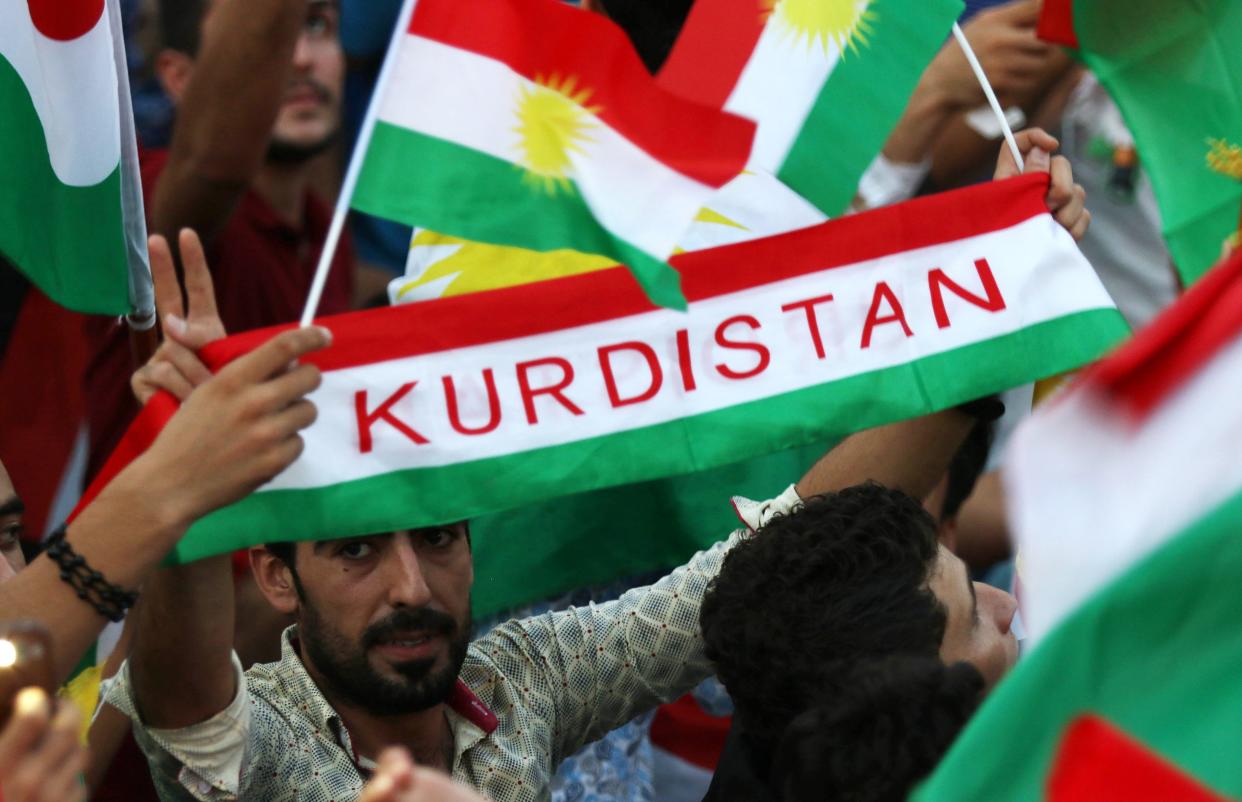
IRBIL, Iraq – The Kurdish people are taking an enormous step to claim their own country in northern Iraq. A referendum vote to secede from the country and become an independent Kurdistan will take place on September 25.
But the Iraqi Supreme Court has ordered a halt to preparations for the vote and Iraqi Prime Minister Haider al-Abadi has said he would use force if necessary to stop it from proceeding.
A poll in August by the Center for Peace and Human Security at the American University of Kurdistan showed an overwhelming majority — around 80 percent — in favor of independence.
Currently, the Kurdish regional government operates as a semi-autonomous region under the Iraqi federal system. There are about 35 million Kurds in total, split among four Middle Eastern nations; they constitute about 17 percent of the Iraqi population.
However, the international community and military coalition partners do not support the timing of the referendum.
Israel, which would welcome a potential ally in the region, is the only country that backs the vote.
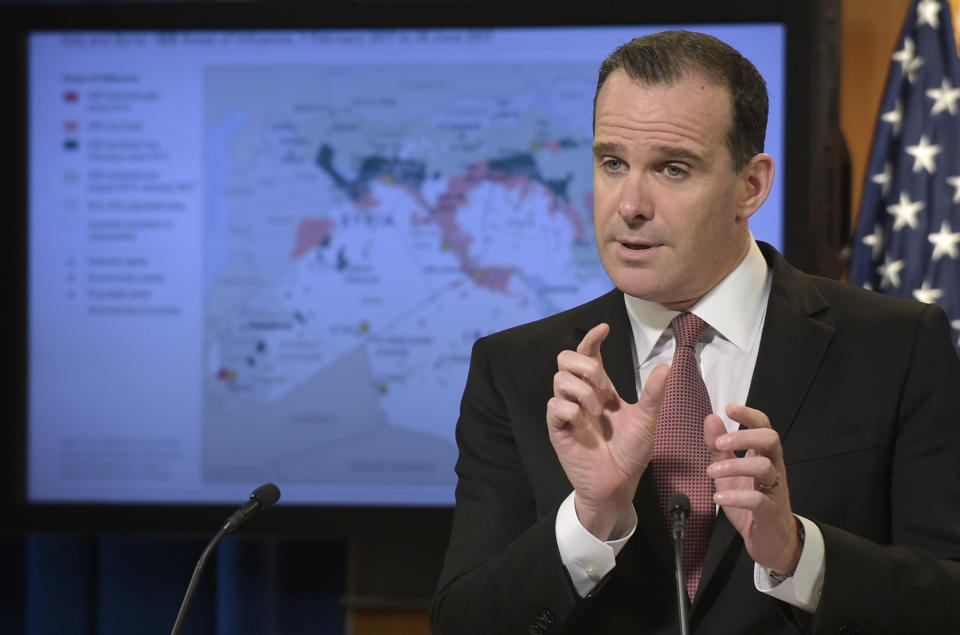
The United States presidential envoy for the coalition, Brett McGurk said the vote was “ill-timed” and “ill-advised,” given that international partners are working in Iraq to defeat the Islamic State. The Kurds have attempted cultivate support among Americans — including, according to the New York Times, hiring President Trump’s former campaign chairman, Paul Manafort, as an adviser.
The U.S. has offered to facilitate talks between the Kurdish regional government and Iraqi central government in Baghdad, but the Kurds are insisting on guarantees from the international community that it will eventually recognize their independent state.
The government in Baghdad says the referendum violates the Iraqi Constitution, but the Kurds say the Iraqi federal government has violated their rights.
The issue dates back at least to the end of World War I, when the Ottoman Empire was carved up into territories, including what is now Iraq. The boundaries left the Kurdish people split among several nations.
Now Kurdish President Masoud Barzani, who has stayed in office for more than a year past the end of his term under an emergency declaration, hopes to start the process toward independence before stepping down.
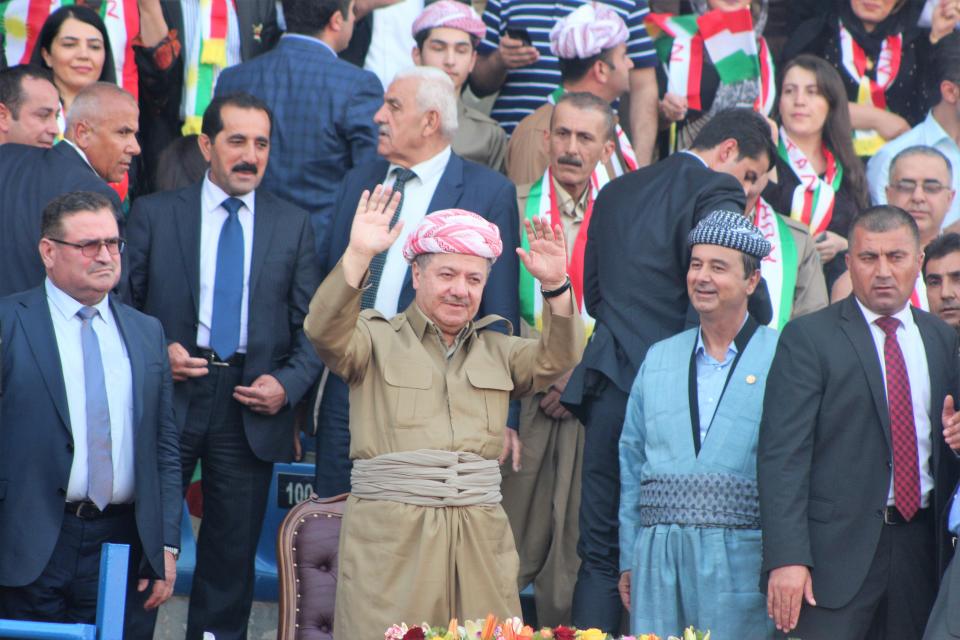
The Kurdish government believes their contributions to the fight against ISIS have earned them the right to independence.
The Kurdish regional government spokesperson, Safin Dizaye told Yahoo News that they “jumped at the opportunity” to build their own system after the fall of Saddam Hussein and that the Kurds are a “story of success” and should be “sponsored and supported” by the international community.
“The success of Kurdistan is the success of a political process,” he added, “and a success of the values that the free world [is] fighting for.”
Rallies supporting a “yes” vote — for independence — have been taking place in Kirkuk, Erbil and Dahuk.
But there have also been voices of those who don’t think the referendum is a good idea — not now anyway. There are two Kurdish political parties who disagree with the timing of the vote, and some Kurds believe their economic situation will grow worse because the region is still fairly reliant on the Iraqi government for support.
The United States worries the push for independence will destabilize Iraq. The heart of Kurdish territory comprises the northern provinces of Sulaymania, Irbil and Dahuk, but the Kurds also have a disputed claim to Kirkuk, where they have expanded their influence since the U.S. invasion in 2003.
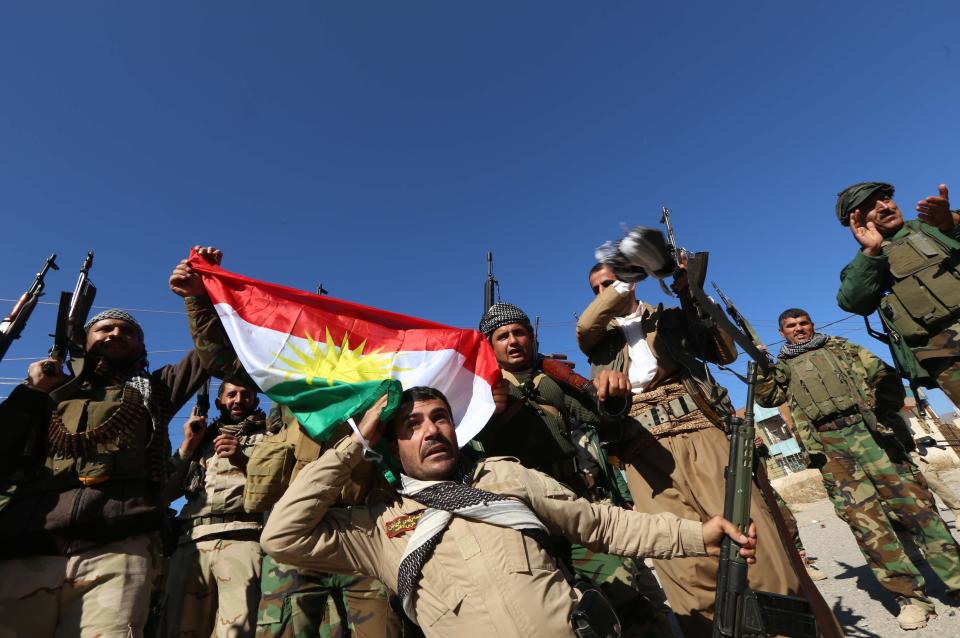
Kirkuk also has oil resources. The disputed territory could spark clashes between Kurdish peshmerga forces and ethnic Turkmen, Iraqi forces or even Shiite militias. The local Turkmen population protested when the Kurdish authorities raised their flag over government buildings.
ISIS also still has a stronghold in the city of Hawija, in Kirkuk Province – where many Sunni Muslim residents were part of Saddam Hussein’s Baath party.
Operations have already begun to retake Hawija and Iraqi forces are at the forefront of this fight, like they were in Mosul and Tal Afar. A U.S. military base in Kirkuk was attacked by suspected ISIS militants recently.
Another concern is the Yazidi population and their territory around Sinjar in the northernmost part of Nineveh, which the Kurds also consider part of their homeland. While the Kurdish peshmerga have control of the roads leading into the city, the mountains and area around it are disputed and claimed by the Baghdad government as well.
A Yazidi representative told the Kurdish Parliament that the Yazidi people needed protection after facing genocide by ISIS. But that doesn’t have to come from the Kurds; some Yazidis who were driven out of Sinjar by ISIS would prefer to be under Baghdad’s rule and under the protection of an international force.
Although the Kurdish government considers the Yazidi people ethnically Kurdish and hosts most of the Yazidi displaced in camps, many Yazidis say they feel abandoned by Kurdish peshmerga — who left Sinjar just days before it was invaded by ISIS.
Yahoo News spoke to a man named Mahmoud, who works with the Iraq police, who said, “It’s not only me — there are others in the Yazidi community serving in the Iraqi establishment, we are part of the Nineveh Province, and when we’re recruited, we’re recruited by the Iraqi authorities. None of the Kurds are in our favor because in August 2014, they were here, and none of them helped the Yazidi community. We feel betrayed.”
Moreover, neighboring countries including Turkey, Syria and Iran, with Kurdish populations of their own, oppose the vote, out of fear of encouraging separatist movements. Iran and Turkey both have threatened to close their borders if the referendum goes forward. Closing the borders would limit food imports and interfere with the return of displaced persons.
For its part, the United States is in a unique position with respect to the Kurdish people. The U.S. has provided weapons and training to the Iraqi Kurds in the fight against ISIS.
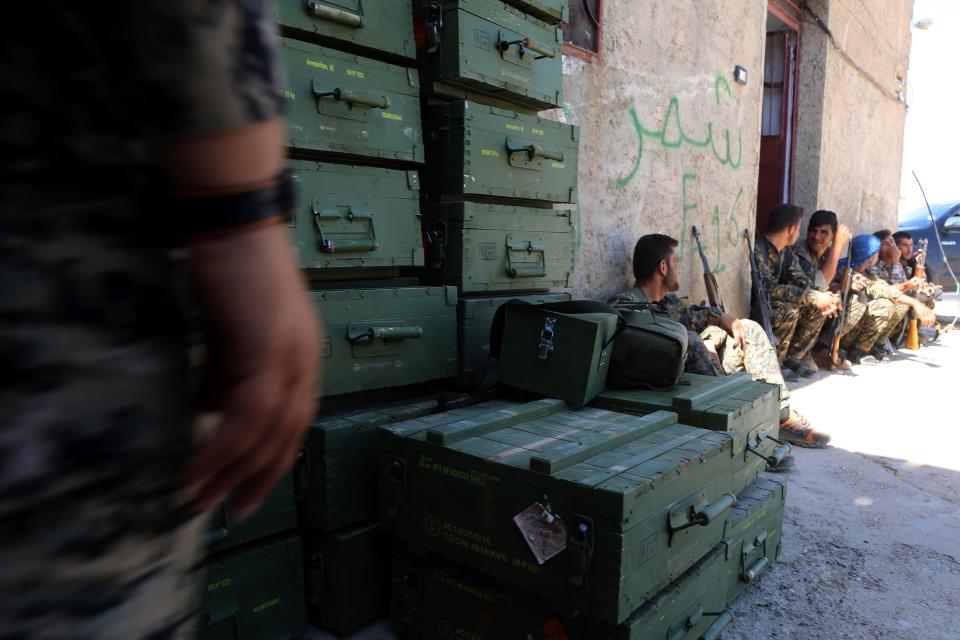
The Pentagon awarded nearly $300 million in military equipment to the Kurdish peshmerga earlier this year. The U.S. is also supporting Kurdish militias in Syria.
However, for the U.S., Kurdish statehood is not a priority, but keeping their support in the fight against ISIS.
In an email to Yahoo news, the U.S. Coalition media office said, “The coalition’s mission is to defeat ISIS by, with and through our partners. We will not speculate or discuss operational specifics pertaining to Iraqi Security Forces’ (or other partners’) operations and contingency plans. The coalition is very clear with all partners that our focus should remain on our common enemy, ISIS.”
The U.S.-led coalition and the United Nations have both demonstrated support for the sovereignty of the ruling government in Baghdad, whose permission it needs for airstrikes on ISIS and for humanitarian rescues.
But even with the likelihood of a successful referendum, it won’t establish immediate independence for the Kurds. Still, it will send a strong message to the world that the Kurdish people are serious about having their own country, and once again, changing the lines of the Middle Eastern map, while taking their place on the world stage.

_____
Ash Gallagher is a journalist covering the Mideast for Yahoo News.
Read more from Yahoo News:



